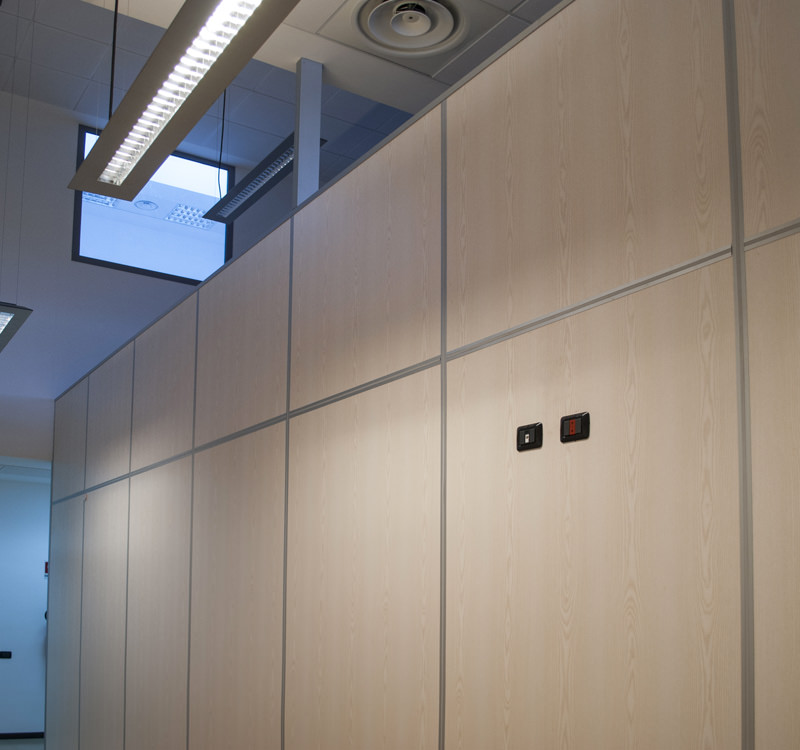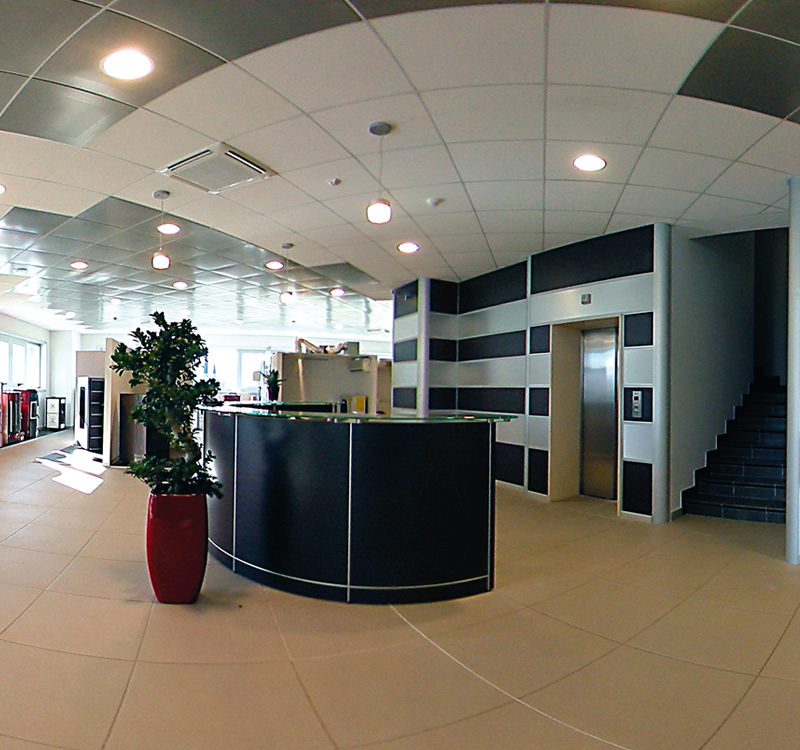What height can easywall walls reach?
The "Easywall" movable wall or internal partitions can be customised and can reach a height which varies from a minimum of 210 cm to a maximum of 450 cm.
Can easywall walls be re-used and/or repositioned once disassembled?
The "Easywall" system consists in prefabricated and easily removable modular elements that can be reassembled in another place of the same size or adapted on site and integrated into different size areas.
Is it necessary to use skilled labour to assemble an easywall wall?
Skilled labour is not required; the system is easy to assemble and all the necessary assistance is also provided.
Is it possible to install new systems in an existing easywall wall?
The wall elements are easily removable and their 7 cm inner cavity allows adding or making changes to all the different systems (electrical, telephone, data, water, air conditioning etc.).
Is it possible to replace the finishing elements in an existing easywall wall?
All of the system’s elements can be replaced by other elements of the same or different nature (cladding, glass parts, doors, pushers, etc.), of the same size or added and adapted in different sizes compared with the original ones.
Is it necessary to drill the floor to instal an easywall wall?
The internal "Easywall" partition can be installed even without mechanical fixings, using only a 3 mm double-sided polyethylene adhesive mat, which also acts as acoustic insulation.
Can paintings be hanged on easywall walls?
Yes, the density (690 kg/cubic metre) and the type of materials (blend of wood fibres) makes absorption stable, with a high level of performance, not only for light loads.
Does the easywall wall system include interlining insulation for exterior walls?
Yes, an "Easywall" counter-wall can be installed on the external cladding that allows the insertion of insulating material or which can be used as a space for the installation of systems.
How much does an easywall wall weigh per square metre?
The blind standard module is definitely less heavy than traditional masonry (about 27-30 kg/sqm compared with 100/110 kg/sqm) and at the same time ensures dimensional and structural stability that is superior to or the same as other dry systems.
Is the installation of easywall walls subject to tax relief?
It certainly is. The costs of purchasing and installing an "Easywall" wall are among the items eligible for tax relief.


